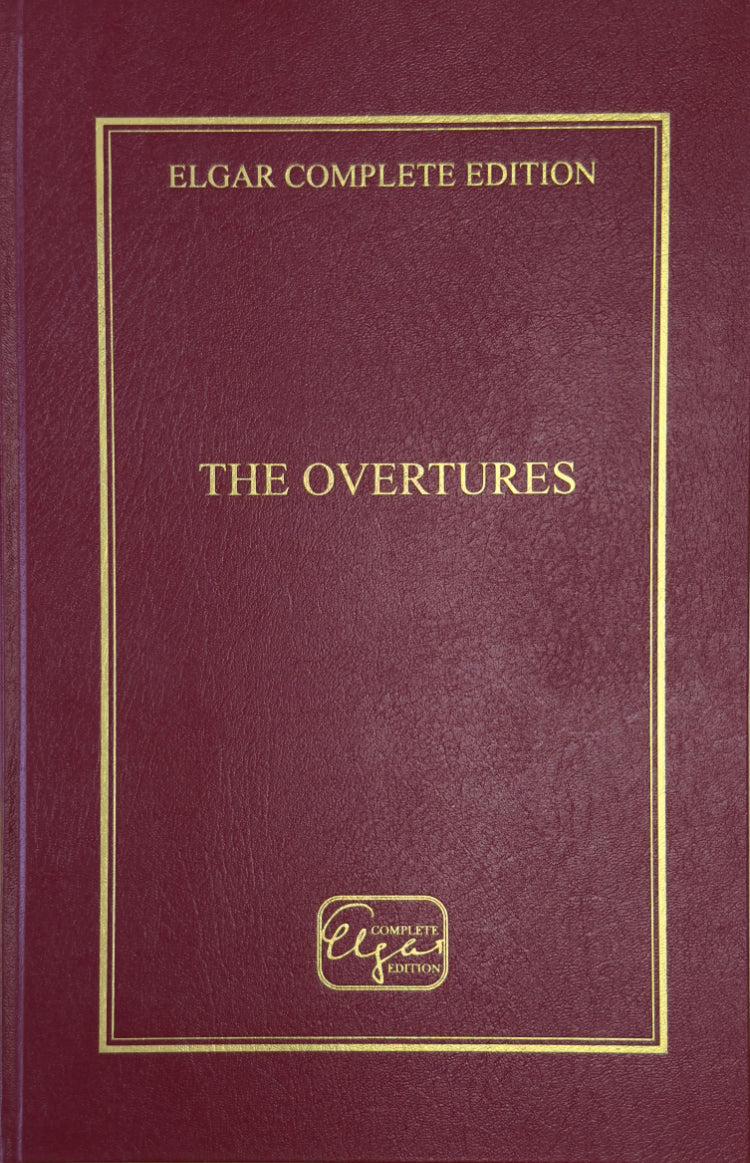Elgar: The Overtures
Complete Edition Volume 28
Expected to ship in 1-2 weeks.
- Composer: Edward Elgar (1857-1934)
- Editor: Sarah Thompson
- Format: Full Score – Hardcover
- Binding: Hardcover
- ISBN:
Description
This volume is primarily taken up with Elgar's three renowned overtures: Froissart , Cockaigne and In the South (‘Alassio'). Bearing in mind how well known these three overtures are, their editing has proved unexpectedly challenging. The original full score and parts for both Cockaigne and In the South were completed in haste for looming premières, resulting in numerous discrepancies which needed to be resolved before publication in this volume. Froissart followed a more complex evolution. Elgar produced two autograph full scores before this work's première at the 1890 Three Choirs Festival. But Novello engraved only the string parts for the Festival's use, publication of the full score and other parts not following until 11 years later. Annotations on the later of Elgar's two autograph scores, including the Novello plate number, show that this was used as the basis for the published full score but there remain substantial differences between the two, notably in the trombone part, pointing to the likelihood of another source, probably a late proof, now lost. Again quite a challenge in addressing the differences, including some which proved to be not fully resolvable.
As ever, however, it is in the volume's Appendix that the points of particular fascination are to be found. Although the fragmentary works rarely import significance for Elgar's musical reputation, they inevitably hold greater uncertainties and the potential for discovery. The current volume contains just three overtures left unfinished by Elgar. Their names are familiar from Elgar's correspondence, but what little music he wrote for each remains hidden in his sketchbooks…well, almost.
The first two – the Lakes and Scotish [sic] overtures – were begun almost concurrently in the early 1880s, Elgar recording progress in his letters to Charles Buck. But the dating of the sketches coincides only approximately with that of the correspondence. We therefore decided late in the day not to distinguish the sketches, labelling them simply ‘Two Overture Fragments' to reflect the uncertainties in their precise identification.
The third incomplete overture, City of Dreadful Night , was intended as a successor to Cockaigne and sketches for it date from the first years of the twentieth century. Elgar labelled four sketches to show their intended use in this overture, but editorial work for this volume has established a musical overlap with other, unlabelled sketches on the same and adjacent sketchbook pages, approximately doubling the amount of material Elgar seemingly composed for the overture. While still far too little to attempt a completion, it gives a significantly fuller insight into the work.
Publishers use a lot of words to describe what they sell, and we know it can be confusing. We've tried to be as clear as possible to make sure you get exactly what you are looking for. Below are descriptions of the terms that we use to describe the various formats that music often comes in.
Choral Score
A score for vocalists that only contains the vocal lines. The instrumental parts are not there for reference. Generally, cheaper than a vocal score and requires multiple copies for purchase.
Facsimile
Reproductions of the original hand-written scores from the composer.
Full Score
For ensemble music, this indicates that the edition contains all parts on a single system (there are not separate parts for each player). In larger ensembles, this is for the conductor.
Hardcover
Hardbound. Generally either linen-covered or half-leather.
Orchestral Parts
Similar to a wind set, this is a collection of parts. In the case of strings, the numbers listed are the number of copies included, though generally these are available individually (often with minimum quantities required).
Paperback
When publishers offer multiple bindings (e.g. hardcover) or study scores, this is the "standard" version. If you're planning to play the music, this is probably what you want.
Performance / Playing Score
A score of the music containing all parts on one system, intended for players to share. There are not separate parts for each player.
Set of Parts
For ensemble music, this indicates that there are separate individual parts for each player.
Solo Part with Piano Reduction
For solo pieces with orchestra, this is a version that contains a piano reduction of the orchestra parts. For piano pieces, two copies are typically needed for performance.
Study Score
A small (think choral size) copy of the complete score meant for studying, and not playing. They make great add-ons when learning concertos and small chamber works.
Vocal Score
A score prepared for vocalists that includes the piano/organ part or a reduction of the instrumental parts.
Wind Set
For orchestral music, this is a collection of wind and percussion parts. The specific quantities of each instrument are notated.
With Audio
In addition to the printed music, the edition contains recordings of the pieces. This may be an included CD, or access to files on the internet.
With / Without Fingering (Markings)
Some publishers prepare two copies - a pure Urtext edition that includes no fingering (or bowing) suggestions and a lightly edited version that includes a minimal number of editorial markings.


